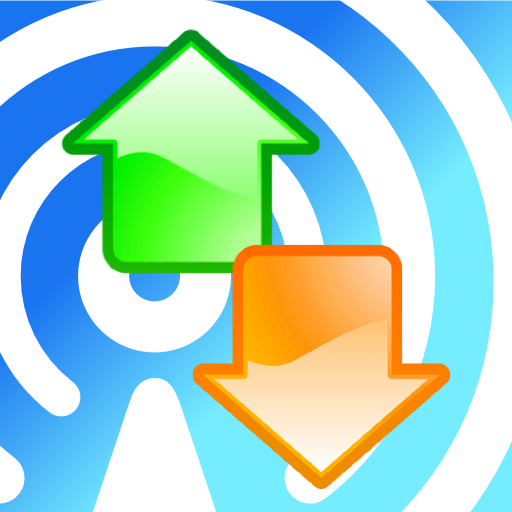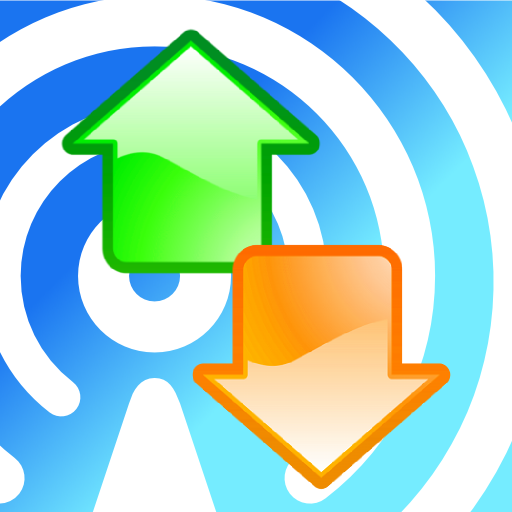
Is AT&T Overcharging Or Are Attorneys Doing What They Do Best?
May 24, 2011
Just a few days ago, we shared a MSNBC story highlighting supposed AT&T overcharging. I asked myself; is AT&T truly overcharging me or is this another example of lawyers once again doing their best to make millions or billions on a baseless class-action lawsuit? I would certainly like to have had that $80k budget these attorneys used, but I'll simply be using good ol' fashion common sense and what I already pay for.
The claim is that the cellular service provider, AT&T in this case, "systematically overstated" charges by up to 300%, including the use of "phantom charges." I've dealt with plenty of companies in my lifetime, and I won't pretend that most of them don't try to squeeze every penny from me that they possibly can. However, customers and lawyers can play just as dirty as corporations, looking for ways to circumvent the system and gain the upper hand.
Armed with XVision's DataMan Pro app, a calculator, and a web browser for accessing my AT&T account details, I went to work on crunching the actual numbers. DataMan monitors all cellular data traveling in and out of your iPhone, and is not carrier specific. In fact, DataMan has some pretty detailed results, which are useful in a few areas.
If you feel like partially following along, view your AT&T data usage by logging into the wireless area at wireless.att.com/accounts, clicking Usage & Recent Activity near the top of the page, then scroll down and click View Details for the appropriate wireless number under Additional Data Purchased Usage. If you got there alright, you should now be viewing a list of Internet/MEdia Net and text message history for the current billing period.
The list contains a lot of entries, so I decided to pick a few sample ranges. A couple week range was reported as 14.5MB by DataMan and 15.4MB when I added those same date entries from AT&T's history pages. Last week, Sunday the 15th through Saturday the 21st, was 9.4MB as reported by DataMan and 9.8MB by AT&T. Indeed, there is an inflation from what I actually used to what AT&T is telling me traveled through their pipes.
Those figures are a far cry from the ridiculous "by up to 300%" claims made by attorneys, but I felt a need to dig deeper anyway. Using last week for my second test, I added up the DataMan amounts, rounding every kilobyte up to the next whole number: 0.1KB to 1KB, 2.3KB to 3KB, 12.0KB to 12KB, and so on. I took this approach because, as far as I know, cellular companies round up minute use and, therefore, likely do the same for data.
Sure enough, the total came out to be the same rounded 9.8MB I came up with when adding AT&T's rounded entries -- they don't show fractions. Is this some sort of absolute? Not yet, but it's a pretty darn good start to a theory. If this is true, it is possible to argue that this is overcharging -- I haven't read through the terms and conditions again to verify. Considering that these samples are only a dozen megabytes or so, I can guess gigabyte usage could show a few dozen megabyte difference or more in the reports.
Let's move onto these "phantom charges." It's in the choice of wording that this becomes a problem. Who would expect less from lawyers, right? I have heard previous rants from users claiming overnight data usage that they couldn't have possibly done. Well, I have half of an answer for you. The transfers occurring while you are sleeping are legit, at least when it comes to the cellular service provider. What I mean is, DataMan shows numerous entries throughout the entire day of data being sent and received over the cellular network. Basically, AT&T isn't making these up simply to add something to your bill.
What are these transmissions? Honestly, I don't currently know. The values range anywhere from 0.1KB to upwards of 100KB. DataMan even registered two that nearly reached 400KB at around 4:00 AM one morning. Making this an even greater mystery are the times for these data transmissions. They occur fairly constantly, but not in exact intervals. I have anywhere from two entries per hour to eight.
Perhaps, the real question is; why are these transmissions happening over the cellular network and not my Wi-Fi network? I typically use very little data beyond my home Wi-Fi network, and these cellular transmissions are constant. At first, I guessed that maybe they are cellular network specific requests, such as date and time synchronization, triangulation, and connection monitoring that can't be done using a Wi-Fi connection. Although, the entries seem way too random, in my opinion, to be a maintenance-type routine.
Where does that leave us? I feel it leaves us with some new questions, but perhaps most importantly, it seems to change where we need to aim the binoculars and crosshairs. I have a new hunch Steve and company may end up doing some further explaining about behind-the-scenes iOS functions. If these expense creating actions by our iPhones are legit and necessary, so be it. However, if they can be reduced by Apple or explained in a way that the user could reduce them, that should be satisfactory to most.
Indeed, one of the reasons I've held onto the unlimited data plan is because I don't want to feel the need to become immediately concerned with such issues, though they still are issues to confront. Now that you have a little more insight; what are your latest thoughts on the matter -- despite hating attorneys even more?
As a reminder, you can use apps like DataMan Pro for iPhone and DataMan for iPad with 3G to track and analyze the situation for yourself -- no need to take my word for it.
[Image credit for The Simpsons artwork goes to the FOX Broadcasting Company]


